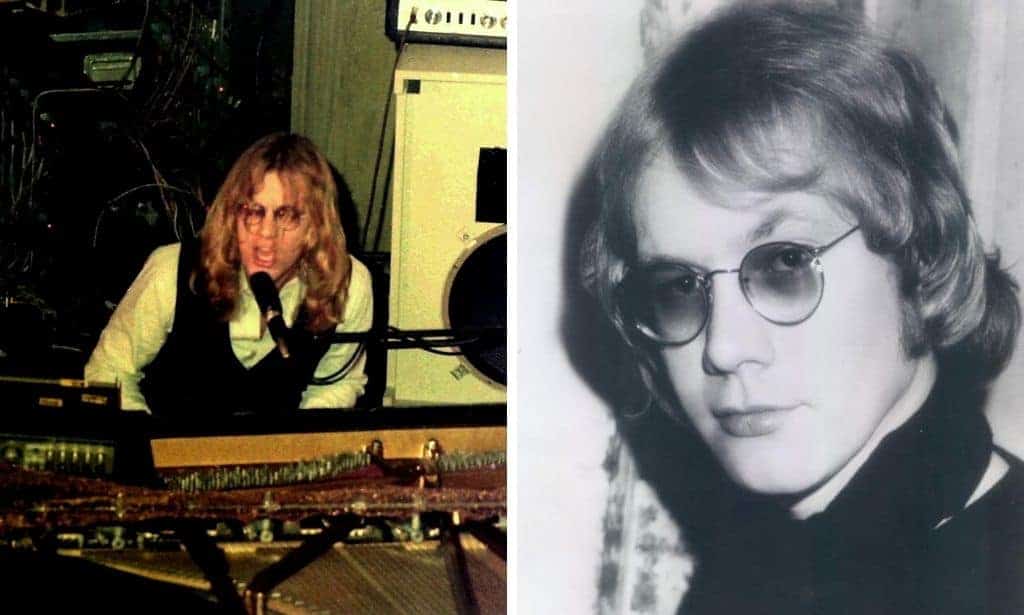

It was during this period that Zevon's excessive vodka consumption earned him the nickname "F. music business and "Desperados Under the Eaves", a chronicle of Zevon's increasing alcoholism. Representative tracks include the junkie's lament "Carmelita," the Copland-esque outlaw ballad "Frank and Jesse James," "The French Inhaler," a scathing insider's look at life and lust in the L.A. Though only a modest commercial success, the Browne-produced Warren Zevon (1976) would later be termed a masterpiece in the first edition of the Rolling Stone Record Guide and is cited in the book's most recently revised (November 2004) edition as Zevon's most realized work. peers a grounding in earlier folk and country influences and a commitment to a writerly style of songcraft with roots in the work of artists like Bob Dylan and Joni Mitchell. Though a much darker and more ironic songwriter than Browne and other leading figures of the era's L.A.-based singer-songwriter movement, Zevon shared with his 1970s L.A. Ronstadt elected to record many of his songs, including "Hasten Down the Wind," "Carmelita", "Poor Poor Pitiful Me", and "Mohammed's Radio." Zevon's first tour during 1977 included guest appearances in the middle of Jackson Browne concerts, one of which is documented on a widely circulated bootleg recording of a Dutch radio program under the title The Offender meets the Pretender. Contributors to this album included Nicks, Buckingham, Mick Fleetwood, John McVie, members of the Eagles, Linda Ronstadt, and Bonnie Raitt. There, he collaborated with Jackson Browne, who during 1976 would produce and promote Zevon's self-titled major-company debut.

and major-label debutīy September 1975, Zevon had returned to Los Angeles, where he roomed with then-unknown Stevie Nicks and Lindsey Buckingham.

Together they composed Zevon's classic "Roland the Headless Thompson Gunner". His dissatisfaction with his career (and a lack of funds) led him to move to Spain during the summer of 1975, where he lived and played in a small tavern in Sitges near Barcelona owned by David Lindell, a former mercenary. Later during the same decade he toured at different times Don Everly and Phil Everly of the Everly Brothers, as they tried to launch solo careers after their break-up. During the early 1970s, Zevon toured regularly with the Everly Brothers as keyboard player and band leader/musical coordinator. Zevon's second effort, Leaf in the Wind, was scrapped (though a belated release was contemplated just prior to his death). Flashes of Zevon's later writing preoccupations of romantic loss and noir-ish violence are present in songs like "Tule's Blues" and "A Bullet for Ramona". Zevon's first attempt at a solo album, Wanted Dead or Alive (1969), was produced by 1960s cult figure Kim Fowley but did not sell well. Another early composition ("He Quit Me") was included in the soundtrack for the film Midnight Cowboy (1969). He wrote several songs for his White Whale label-mates the Turtles ("Like the Seasons" and "Outside Chance"), though his participation in their recording is unknown. He spent time as a session musician and jingle writer.
#WHEN DID WARREN ZEVON DIE LICENSE#
He used artistic license and refused to capitalize the band name). Letterman later sang with Zevon on "Hit Somebody! (The Hockey Song)" with Paul Shaffer and members of the CBS Orchestra.Īt one time he sang with high school friend Violet Santangelo as a musical duo called "lyme & cybelle". He was often a guest on Late Night with David Letterman and the Late Show with David Letterman. He liked to sing Bob Dylan's "Knockin' on Heaven's Door" and Leonard Cohen's "First We Take Manhattan".

Zevon sometimes recorded or sang cover songs. These include "Poor Poor Pitiful Me" (a top 40 hit by Linda Ronstadt), "Accidentally Like a Martyr," "Mohammed's Radio," "Carmelita", and "Hasten Down the Wind". Zevon has written many songs that were recorded by other artists. His most famous songs include "Werewolves of London", "Lawyers, Guns and Money", "Roland the Headless Thompson Gunner" and "Johnny Strikes Up The Band." All of these are from his third and most famous album: Excitable Boy (1978). Many famous musicians have said they liked Zevon's work, including Jackson Browne, Bruce Springsteen, Bob Dylan, and Neil Young. Zevon wrote many songs that were humorous and often political Warren William Zevon (Janu– September 7, 2003) was an American rock singer-songwriter and musician known for including his strange and somewhat critical opinions of life in his lyrics.


 0 kommentar(er)
0 kommentar(er)
